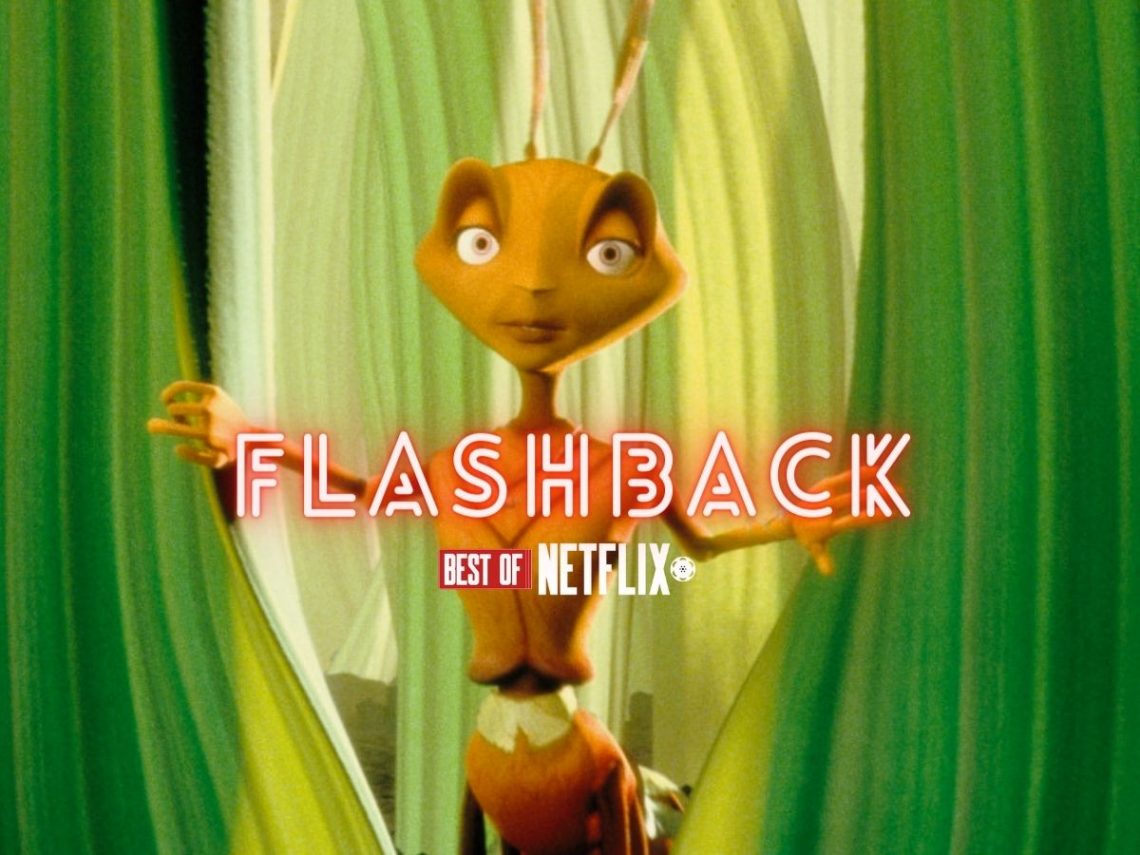As part of Netflix Flashback, we’re aiming to bring you some of the classic movies left in the dustier parts of the streaming platform. While newness and fresh titles are certainly worth watching, these movies are worth far more in cultural gold. This week, we’re looking at Antz.
Antz has historical stakes as a film by being both DreamWorks Animation’s first project and the second feature-length computer-animated film produced after Toy Story. The 1998 movie features a star-studded voice cast: Woody Allen, Sharon Stone, Jennifer Lopez, Christopher Walken, Dan Akroyd, Danny Glover and others.
In a seemingly straightforward story, ant worker Z is cited as insignificant as an individual. Instead, he is directed to validate himself only as one of many miners, ranked way under the soldiers and the generals on top. As it’s marketed as a children’s comedy, Z is required to end up in some bizarre situation by accident — which, of course, he does.
This little animated ant winds up becoming a symbol of capitalist resistance and individual libertarianism. That’s right, Dreamworks’ feature is an animated allegory for communist revolutions. But exactly how does a leftist politics reading of a fever dream animation come to be? Also, is it pro or anti-communist?
If you’re well-read in Marx, then the story summary previously given should signal Marxist theory, such as how the proletariat class rank is created. Furthermore, Z is introduced to the audience by condemning his fellow ants’ submission to an oppressive system. He summarises the environment as “mindless zombies capitulating to an oppressive system”.
This bears a striking resemblance to one book Karl Marx wrote once about the greatest yet hidden oppression our society exerts, looking so far to be pro-communist by critiquing the opposite ideal.
After falling in love with the colony princess and finding out his colony wage war against an enemy termite colony, Z exchanges his low-rank place with his soldier friend, Weaver. He leaves one area of labour to move up one place in the systematic hierarchy and joins the army, where he befriends staff sergeant Barbatus. However, the first battle is a blood bath, and nearly all of the soldiers are killed.
Before dying, Barbatus tells Z to think for himself instead of blindly following orders. This powerful moment translates Marx’s manifesto, referencing how the lower class who are being exploited by those higher up need to uprise against the oppressor. After Z returns and gains, then loses, a war hero status, he and the princess are left stranded outside the blanket of their colony.
Following this sudden exit from the colony, Z becomes a symbolic figure. He is painted as an ant who went against the restricted decided path. The heroic symbolism of Z becomes even more poignant as his worker status is highlighted – he becomes a symbol of the new ant, one that goes beyond the genetic distinctions among queens, soldiers, and workers.
This triggers a pivotal moment of collective awareness. The workers, tired of their recently realised exploitation, turn against their supervisors by recognising and establishing their collective power. They chant, “the workers control the means of production!” again echoing Marx’s works.
The supervisor is no longer viewed as a leader for guidance; instead, the workers brand him a “pawn of the oppressor”. They then engage in direct action by rebelling against the system. They set a general strike in motion and created protest signs out of their resources of leaves.
Unfortunately, this sudden resistance movement does not bring a complete overthrow of the classist ant society, which Marx would have loved to see. General Mandible publicly portrays Z as a self-centred war criminal in a disingenuous attempt to maintain his stance in the hierarchy. He then promotes conformity as the safest way to live life, promising the workers rewards for completing a “Mega Tunnel” he designed. Eventually, the workers return to their labour. However, after the princess is kidnapped on behalf of General Mandible, the General’s true sinister motive is revealed. He is planning to cement a fascist colony of exclusively soldier ants. The workers are only needed for their physical labour — they create a tunnel to flood the colony. Effectively, he has manipulated the workers into digging a tunnel to their own demise.
As the general is situated as the film villain through his pro-systematic abuse stance and ideals, Antz again translates as being pro-communist.
While Z was aware of the colony’s oppressive nature, he turned towards individualistic solutions to his problems rather than recognising their structural origin in the colony’s classist, determinist social structure. He failed to recognise and utilise the broader conception of workers’ potential power as a collective. However, as the impending flood threatening a cleanse breaches the horizon, Z develops through a moment of realisation: workers united can save themselves. After this brain blast of leftist politics, the worker ants unite and form a giant ant-ladder towards their salvation, saving themselves against Mandible’s plan.
The colony is rebuilt under a better and more fair image, as Z explains that he is now content with his life. This again showcases communism as a positive, something that can bring a utopia for everyone. The climax is the real exposition of Marx-communist ideology. A union between the workers orchestrating an uprising against a capitalist system of exploitation is exactly what Marx was writing about. This is a bizarre example of film as political expression.
Watch Antz on Netflix now.
